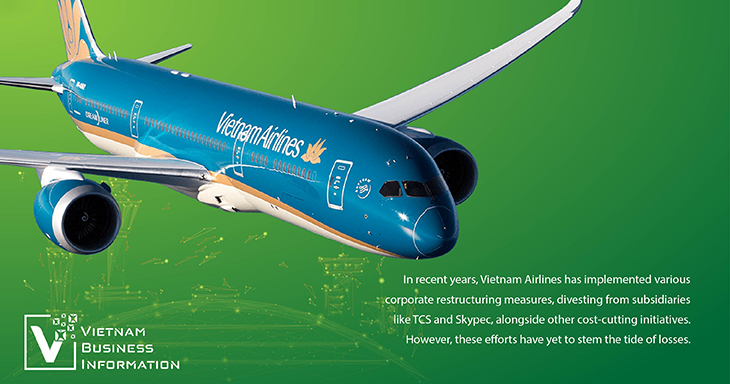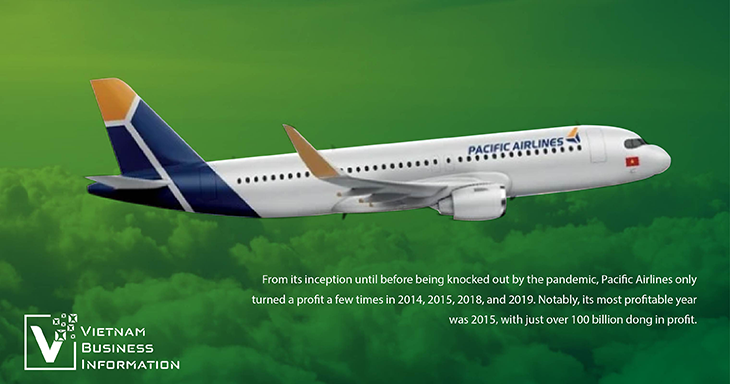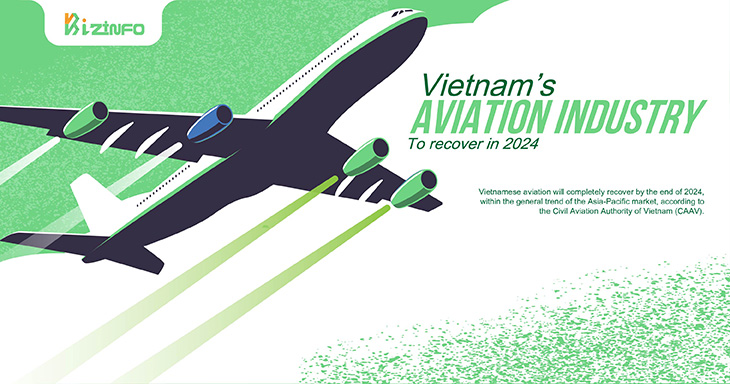Published Mar 2024
Vietnam's aviation sector in the midst of adversity
While the aviation market in Vietnam boasts numerous participants, reaping profits remains an uphill battle.

The Civil Aviation Authority of Vietnam recently urged Pacific Airlines to ensure the conditions for maintaining its aircraft operation certificate. Consequently, Pacific Airlines is swiftly restructuring its fleet to resume operations at the earliest.
This action comes after Pacific Airlines fully returned leased aircraft to alleviate its debt burden, which could exceed $200 million owed to lessors. The airline plans to hire some aircraft from its parent company, Vietnam Airlines, to sustain its operations.
Currently, Pacific Airlines grapples with cash flow difficulties, substantial overdue debts, high default risks, and the looming prospect of cessation. Throughout 2020-2022, this budget airline consistently reported losses exceeding 2 trillion VND each year.
Pacific Airlines' plight is just one of many "crises" that aviation enterprises must endure and address in the aftermath of the lingering effects of COVID-19.
The industry-wide struggle
Pacific Airlines is not alone in its challenges. Even Vietnam Airlines, the parent company, is undergoing restructuring to overcome losses and reclaim its position as the national carrier.
By the end of 2023, Vietnam Airlines had accumulated losses surpassing 40 trillion VND, maintaining negative equity and facing the risk of delisting from the stock exchange.

In recent years, Vietnam Airlines has implemented various corporate restructuring measures, divesting from subsidiaries like TCS and Skypec, alongside other cost-cutting initiatives. However, these efforts have yet to stem the tide of losses.
Private carrier Bamboo Airways, lacking support akin to that of state-backed Pacific Airlines, has also undergone restructuring, downsizing its fleet, shrinking its market, and reducing flight routes.
Despite changes in shareholder structure, Bamboo Airways continuously experiences operational setbacks. Moreover, its restructuring process is expected to be protracted and resource-intensive.
In 2022, Bamboo Airways continued to operate at a loss, exacerbated by provisions for difficult-to-recover debts, resulting in cumulative post-tax losses exceeding 17.6 trillion VND.
Another industry giant, Vietjet Air, although demonstrating better resilience, still faces adverse effects from the aviation crisis of the past year. Despite efforts to return to profitability in 2023, Vietjet Air, the largest low-cost carrier in Vietnam, recorded cumulative net losses over the past four years, amounting to nearly 1.8 trillion VND, equivalent to nearly 40% of its charter capital.
Challenging business environment
In addition to the direct impact of reduced travel demand during the pandemic, airlines also contend with escalating operating costs due to soaring average fuel prices, peaking at $130 per barrel.
Moreover, sudden spikes in borrowing costs, prices of spare parts, equipment, and aircraft engines have further burdened airlines amid the global supply chain disruptions caused by the pandemic.
It's evident that the recent challenges confronting the aviation industry in Vietnam are not entirely new. Despite a relatively lively market with the involvement of multiple airlines, reaping profits has remained exceedingly difficult.
From its inception until before being knocked out by the pandemic, Pacific Airlines only turned a profit a few times in 2014, 2015, 2018, and 2019. Notably, its most profitable year was 2015, with just over 100 billion dong in profit.

In 2020, billionaire Pham Nhat Vuong surprised many by announcing the termination of the Vinpearl Air project, withdrawing from the aviation sector, despite the project having been appraised by the Ministry of Planning and Investment and submitted to the Prime Minister for consideration and approval.
Another private airline, Vietravel Airlines, still struggles with a fleet of only three aircraft, just enough to maintain its business license.
Dim prospects for recovery
At present, except for Vietjet Air showing signs of recovery, Bamboo Airways, Pacific Airlines, Vietravel Airlines, and even Vietnam Airlines are still wrestling with restructuring to ensure continuous operations before the market truly transitions through these challenging times.
Regarding recovery prospects in the near future, the Civil Aviation Authority of Vietnam predicts that the aviation industry in Vietnam will fully recover by the end of 2024, following the general trend of the Asia-Pacific region.
However, the authority also warns of potential risks impacting the domestic aviation sector in 2024. These include signals from many countries maintaining tight monetary policies, the possibility of fuel price increases due to political conflicts in the Middle East, or shortages of high-quality manpower and inadequate domestic airport infrastructure, all posing risks to the aviation industry's recovery process.
Moreover, the recall of aircraft engines by Pratt & Whitney has led to an aircraft shortage, directly affecting the operational, recovery, and expansion plans of airlines. With the recall affecting up to 42 aircraft, accounting for about 20% of the total aircraft fleet of Vietnam Airlines and Vietjet Air, recent domestic flight ticket prices have increased significantly.
According to forecasts by the International Air Transport Association (IATA), global airlines are expected to achieve record revenue this year, reaching $964 billion, with passenger transportation revenue accounting for about $717 billion, a 12% increase compared to 2023.
Source: theleader
Compiled by VBI


